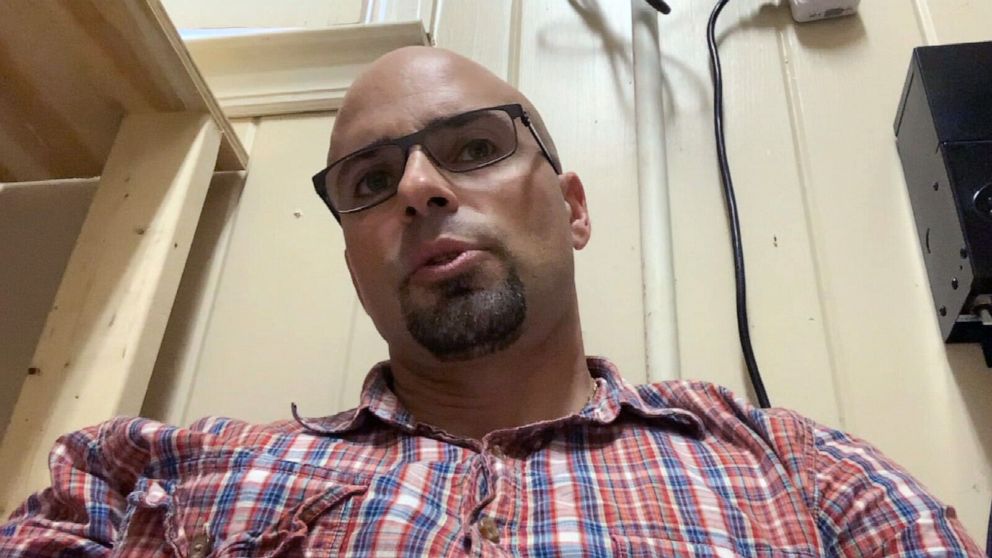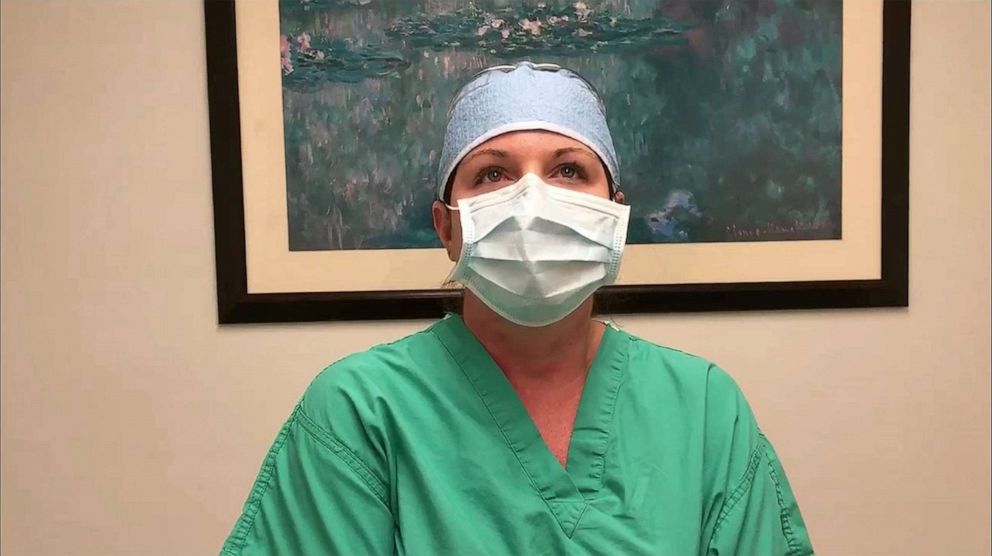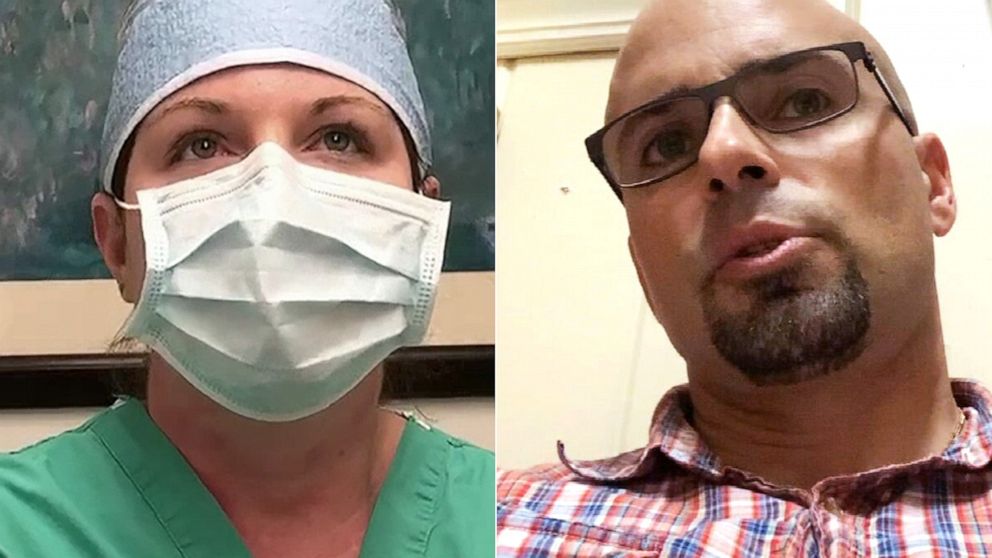Video diaries of health care workers document the 'fight of our lives'
Medical professionals on the front lines of the coronavirus outbreak across the U.S. are documenting their raw truths of what's happening beyond the waiting room doors.
Two health care workers from Phoebe Putney Memorial Hospital in Albany, Georgia, taped video diaries on Thursday where every bed in the Intensive Care Unit is occupied by patients with coronavirus, formally known as COVID-19, and where, to date, 16 people have died.
In a 15-minute diary, Dr. Enrique Lopez is inside the garage at his home and self-quarantined to protect his wife and three children from possibly contracting the viral infection that's killed almost 25,000 around the world.
Lopez, who showed in the video he's covered in ant bites from living in the garage, shows photographs of his family and says, "I look at those pictures every single day, and I realize that we are in the fight of our lives."
"We're starting to put patients on the ventilator on the floor on life support. It doesn't seem to be getting any better, all it seems to do is get worse," said Lopez who recorded the daily grind at the hospital where he works as a surgical intensivist in the ICU. "It surprises us on a daily basis. We're doing things we never thought we would be doing."
Lopez comes home to his garage at night and washes himself in a sink, but he can barely sleep.
"This situation will define us -- how we respond to it will live on forever, and I've never been more proud to be part of something greater than myself," Lopez added.
Lopez said all of his team members have been willing able to risk their own health to help others.

Like Registered Nurse Carley Rice, who describes in her own videos how hard it is taking care of patients who are separated from their families.
"They're sitting here, passing away without loved ones. It honestly breaks my heart," said Rice, who works in the ICU.
Rice describes having to facilitate a FaceTime video call between a dying patient and that person's family as the patient squeezed her hand.
"We're having to do this for people, and some people don't even get to do that. Some people don't get goodbyes. They just get a phone call," said Rice.

As of Friday morning statewide, 56 people have died among at least 1,600 confirmed cases of COVID-19.
"And I thought that we would never have to go through this without family members being beside 'em. But I will treat every single person like they're my family so they aren't alone. I would hope that someone would do that for my family, and that's why we do what we do," Rice said. "We are there for yours when you can't be."
The coronavirus outbreak has called for health care workers to also record the demand for essential supplies.
The Trump administration has not appealed to put the Korean War-era Defense Production Act into practice, instead leaving private companies to volunteer production lines and states to compete for contracts on masks, ventilators, gowns and other essential supplies to treat patients.
"We are having a mass shortage of the N95 mask -- I looked everywhere in Vegas and I couldn't find anything ... finally had a friend give me the P100 mask," said Dr. Dave Macintyre, who treated hundreds of patients after the 2017 Las Vegas mass shooting and now is battling COVID-19.
Macintyre recorded videos of his after-work routine, where he, like Lopez, strips down in the garage to prevent bringing the virus into his house. He also takes extra precautions by not allowing anyone else into the family car.
Nevada has more than 500 coronavirus patients and at least 10 deaths.
A Michigan emergency room nurse posted a gripping, seven-minute video on Instagram saying that they're out of fentanyl, Tylenol and ventilators.
"Please heed my advice and stay home. Stay home with your loved ones, don't go out, don't go to the grocery stores, don't go through the drive-thrus, don't do anything that could put you at risk to have to see me at the end of the tunnel," said Mary Macdonald.
Michigan has seen at least 2,800 coronavirus patients and 60 deaths.
What to know about Coronavirus:
- How it started and how to protect yourself: Coronavirus explained
- What to do if you have symptoms: Coronavirus symptoms
- Tracking the spread in the US and Worldwide: Coronavirus map




